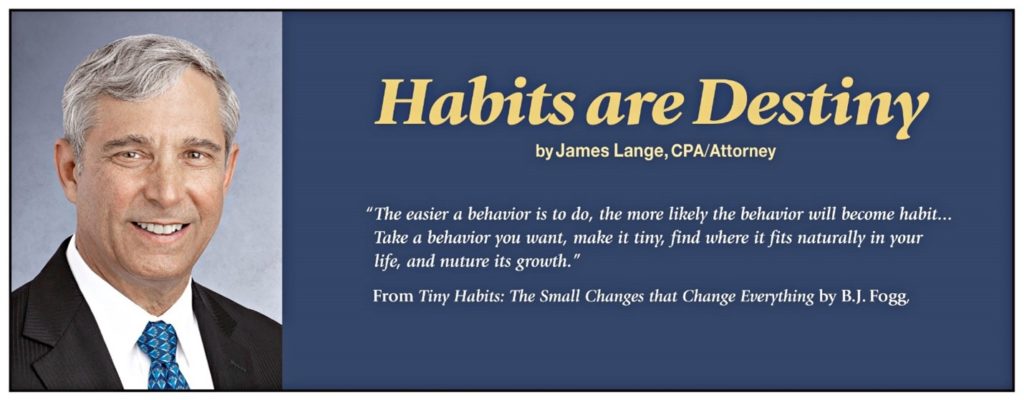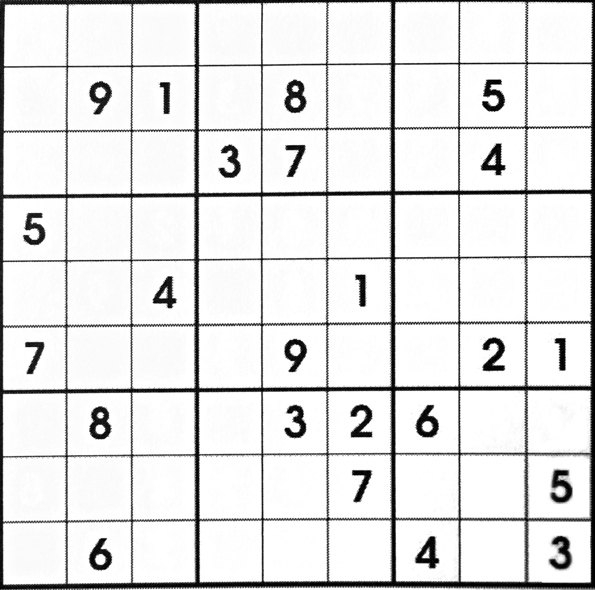Table of Contents
The habits that we create and stick with as well as the behaviors that don’t become part of our regular routines all influence the broad trajectory of our lives.
Adopting new habits or changing existing habits can help us achieve transformative goals. Changing our habits can help us change our destiny.
I think most people understand the interplay between habits, behavior, and outcomes. We know, for instance, that when we want to lose weight, de-stress, sleep better, or be more productive, changing our habits is essential. But it’s one thing to understand which bad habits we want to break and which good habits we want to incorporate and another thing to successfully create and sustain those desired behavioral changes—there can be a painful gap between what we want and what we actually do.
How “Autopilot” Helps with Sustaining Habits You Want to Embrace
As many of you know, I’ve spent the last few decades trying to develop and maintain habits that improve my overall health and fitness…with varying degrees of success.
On the one hand, I have successfully cut sugar, dairy, and gluten from my diet.
On the other hand, maintaining a consistent weight (like so many of us) eludes me. In no small part because I’ve struggled to break my snacking habit. If only my gluten, dairy, and sugar-free “ice cream” could be calorie-free too!
So, why the discrepancy in my success rates? Why is it that some habits are easier to maintain than others? Is there some factor working to stack the deck in favor of my success when it comes to “kicking” my sugar/gluten/dairy habit that isn’t in play when it comes to limiting snacks?
Absolutely.
When my wife, Cindy, and I set out to transform our diets, the first thing we did was to hire Lauri Lang (no relation), a nutritionist who is available for additional clients (https://LauriLang.com). Lauri, in concert with our functional medicine doctor, developed individualized dietary plans for me, Cindy, and our daughter, Erica. Lauri and her assistant prepare most of our meals (sorry, neither are available for more shopping or cooking).
All we must do to eat a good, healthy meal that meets all of our dietary restrictions is open the fridge. I recognize how helpful it is for me to have this aspect of eating on autopilot. We don’t need to expend extra energy—physical or mental—to maintain our good habits.
In fact, I’ve been proselytizing about the benefits of putting any number of tasks on autopilot for so long that many of you can probably recall a moment from a consultation or annual review when you might have mentioned struggling to maintain a weekly workout regimen, and I suggested hiring an in-home personal trainer. I often describe using the combination of our comprehensive tax, investment, retirement, and estate planning services as “putting your financial success on autopilot.”
Looking back, I can see that building in an autopilot function helps me cement the behavioral changes I want to encourage. And vice-versa. Habits I have unsuccessfully broken also seem to have a common feature—they required extra energy that was difficult for me to find or harness.
Research Seems to Support the Autopilot Function
A substantial body of behavioral science research indicates that new behaviors that strain time, money, physical capacity, or mental energy, or that do not fit into a person’s pre-existing routine without requiring many adjustments, are far less likely to successfully become habits.
B.J. Fogg, a Stanford behavioral scientist, in his book, Tiny Habits: The Small Changes that Change Everything, identifies each of these factors (time, money, physical effort, mental effort, and routine) as a link in the “Ability Chain.” And the chain “is only as strong as its weakest link.” In my case, by reducing the amount of energy I need to expend to feed myself healthfully, I strengthened the ability chain for my dietary regimen and increased the likelihood that my efforts would succeed over the long term.
Unfortunately, the list of habits I need to change is still a bit long!
Let me propose some self-reflection. Think about a habit you want to change or adopt. Is one of the factors on the ability chain imposing obstacles? For example, is the drain on your mental energy just too onerous? Can you think of any autopilot “hacks” that could solve those problems and shore up your ability chain? Next month I’ll look at more “habits” research. New Year’s resolutions are only months away.
Final Webinars of 2021!
With New Tax Laws on the Horizon, Million-Dollar IRA Owners
Must Act Quickly to Preserve Wealth:
Roth IRA Conversions, Flexible Estate Plans, Trusts, & Investment Strategies
Learn tax-savvy strategies that could save you and your family tens, maybe hundreds of thousands, of dollars.
Tuesday, November 30th & Wednesday, December 1st, 2021
Register to attend: https://PayTaxesLater.com/webinars
TUESDAY, NOVEMBER 30, 2021
Session 1: 10:00am – Noon Eastern
The Urgency of Roth IRA Conversions with New Tax Laws on the Horizon.
Click here to register
The benefits of a series of well-timed Roth IRA conversions in the appropriate situation could mean tens, or hundreds of thousands, of dollars difference to you and your family. This isn’t a matter of opinion. It is a matter of math. To make things much worse, even if by some astonishing chance taxes don’t go up in the long run, IRA owners must defend their families against the dreaded SECURE Act. Roth IRA conversions are often a critical defense, sometimes the most important defense against the SECURE Act’s provision that causes a massive tax acceleration on inherited traditional IRAs. Quantitative analysis is critical.
In addition, Roth IRA conversions can reduce estate and inheritance taxes. Again, it is a matter of math, not opinion.
This information-packed workshop, with Roth IRA analysis, peer-reviewed and vetted by the American Institute of CPAs most prestigious tax journal, can help you get more tax benefits from a Roth IRA conversion and more security for your family.
Traditionally, the best time to do a Roth IRA conversion is after you no longer have an income from your job or business, but before you turn 72 when required minimum distributions on top of your Social Security benefits and other income kick in. But our projections prove that when you take into consideration very likely tax rate increases and the SECURE Act, many taxpayers who are still working can benefit from a series of conversions. In addition, IRA owners 72 or older can also benefit.
But that doesn’t mean everyone should be doing large Roth conversions right now. Roth conversions must be evaluated based on an individual’s or family’s unique circumstances. Additionally, factors such as triggering additional premiums on Medicare Part B, the impact on qualified dividend exclusion, capital gains rates, as well as investment income tax rates must be weighed into the calculation. I didn’t say it was an easy math problem, but that is what it really is.
What You’ll Learn:
- The peer-reviewed math of Roth IRA conversions.
- Optimal timing for Roth IRA conversions.
- The best plan for taking distributions from your retirement accounts.
- Does it make sense to pay for a Roth IRA conversion with a home equity loan?
- The one single decision that can get you bigger Social Security checks.
- The synergistic calculation of optimal Social Security and Roth IRA conversion strategies.
- Using Lange’s Cascading Beneficiary Plan in conjunction for Roth IRA conversions and why our strategies have changed since the SECURE Act.
- Roth IRA conversions and trusts (that will be tied into tomorrow morning’s session).
Session 2: 1:00pm – 3:00 pm Eastern
Live Q&A with James Lange: Ask Me Anything!
Click here to register
Jim will answer attendees’ questions submitted in advance of the webinar as well as during the webinar. This is a golden opportunity to get straight—and personalized—answers to your most perplexing retirement questions. What haven’t you thought of? Learn even more from listening to the questions and answers from others who are in similar circumstances.
WEDNESDAY, DECEMBER 1, 2021
Session 3: 10:00 am – Noon Eastern
Flexible Estate Plans and Using Trusts to Protect Your Family.
Click here to register
After you hear how to build flexibility in your estate plan, you might think, gee, why didn’t my attorney tell me about that?
Why commit yourself to a particular estate planning strategy that may or may not be the most effective at death? Why not build in enormous tax-savings flexibility into your estate plan? Learn how to build enormous flexibility that could save your heirs hundreds of thousands of dollars or in some cases over a million dollars.
Trusts can ensure your hard-earned money is handled responsibly, long after you are gone. Perhaps you are worried about creditors destroying your legacy. Unfortunately, the ex-spouses of your children can be the fiercest creditors jeopardizing an inheritance from you. Trusts can stop them dead in the water!
Most trusts that we examine when the underlying asset is an IRA and retirement plan are botched. Bad trusts can trigger a massive acceleration of income taxes after your death if they don’t meet five specific conditions. Yet many attorneys don’t include those provisions in their trusts. Those omissions could cost beneficiaries tens or even hundreds of thousands of dollars.
What You’ll Learn:
- Should your heirs inherit your IRA directly, or would naming a trust be safer?
- Is it worth the aggravation of creating and administering a trust after you are gone?
- Is trust planning still appropriate for your family and which trusts should you use?
- Is the “I don’t want my no-good son-in-law to inherit one red cent of my money” trust right for you?
- Trusts for minors.
- Spendthrift trusts — how to protect adult children from their own bad judgment and creditors.
- Trusts for special needs beneficiaries. The SECURE Act offers protection for beneficiaries with disabilities or chronic illnesses if the trust is drafted properly.
- The SECURE Act changes the type of trust we recommend for IRA owners.
- The pros and cons of avoiding probate.
- Lange’s Cascading Beneficiary Plan — how to integrate trusts into the best and most flexible estate plan for married couples.
Session 4: 1:00pm – 3:00 pm Eastern
Live Q&A with the Dream Team: Larry Swedroe, Adam Yofan of Buckingham Strategic Wealth, and James Lange Answer Your Questions on Investing & Wealth Management and Preservation
Click here to register
Many viewers comment that they were glad someone asked a particular question for two reasons.
- That was the question they were thinking about.
- They weren’t thinking of an issue that they should have been thinking about.
Larry, Adam, and Jim will answer attendees’ questions submitted in advance of the webinar as well as during the webinar. Take advantage of this golden opportunity to have your most nagging investment questions answered.
Larry Swedroe, Chief Research Officer of Buckingham Strategic Wealth, educates individuals on the benefits of evidence-based investing. Larry has authored nine books and co-authored seven books on investing, including his newest book, Your Complete Guide to a Successful & Secure Retirement. Larry has made appearances on NBC, CNBC, CNN, and Bloomberg Personal Finance.
Adam Yofan, CPA, PFS, leads Buckingham’s Pittsburgh office. Adam navigates clients toward financial clarity by defining goals and needs, reviewing assets, providing recommendations, implementing and managing portfolios, and tracking progress as they pursue well-defined goals.
Past performance is no guarantee of future results. All investing involves risk, including the potential for loss of principal. There is no guarantee that any strategy will be successful. Indexes are not available for direct investment.
2021 Year-End Tax Planning Strategies
We are basically done with our annual year-end tax planning strategies recommendations. There are a few numbers we are waiting for, but the rest of the letter is done and available at the following website:
https://PayTaxesLater.com/2021YearEnd
If anyone would prefer a printed copy of our recommendations, please call Edie Britton at 412-521-2732.



